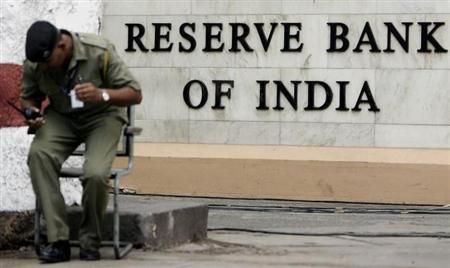
Public sector executives and lawyers dealing with bank cases said that banks will no longer be able to use blanket refusal to provide information.
The Reserve Bank of India and the banking sector may soon have to disclose the name of defaulters to people seeking such data under the Right to Information Act.
The Supreme Court, on Wednesday, ruled that bankers cannot deny information on defaulters and irregularities on grounds of 'economic interest, commercial confidence, and fiduciary relationship.'
The SC dismissed a large number of appeals moved by Reserve Bank of India, ICICI Bank and National Bank of Agricultural and Rural Development, invoking banking rules and confidentiality to deny the information.
The appeals came against orders of the Central Information Commissioner in various cases.
“The facts reveal that as banks are trying to cover up their underhand actions, they are even more liable to be subjected to public scrutiny,” the court remarked, adding that it has surmised that many financial institutions have resorted to acts which are neither clean nor transparent.
Welcoming the apex court’s ruling senior advocate Prashant Bhushan, who appeared for two respondents, said: “The SC’s decision shows how public authorities and public institutions like the RBI are trying to defeat the objective of the Right to Information by giving frivolous excuses.”
“Companies who are defaulters with no net worth or who have siphoned off money are sought to be hidden. Why? In fact, this information should be proactively put up on a website by the banks and RBI should be encouraging disclosure of information,” Prashant Bhushan said.
While RBI officials were not immediately available for comment, banks did not want to comment on the ruling. Lawyers say the petitioners can file an appeal for review with the same bench or plead for moving the matter to a larger bench.
RBI could also seek a stay on operation of the order for some time, pending appeal.
Public sector executives and lawyers dealing with bank cases said that banks will no longer be able to use blanket refusal to provide information.
They will have to justify why they can’t provide information about defaulters under safeguards provided in the Right to Information Act.
“We fear that this will lead to a spate of litigations between banks and borrowers if the defaulters’ names are revealed because there are non-disclosure agreements between banks and borrowers,” said a senior banking official.
Ananda Bhoumik, managing director at India Ratings & Research said: “RBI and banks will now have to tighten the provisions of wilful defaulter norms and make it more transparent.
This will bring in greater discipline in the system.”
The judgment said that the RBI, in association with them (banks), has been trying to cover up their acts from public scrutiny.
“It is the responsibility of the RBI to take rigid action against those banks which have been practicing disreputable business practices,” said Justice M Y Eqbal.
RBI took the brunt of criticism as it was the regulator and had strongly opposed the invocation of the right to information arguing that it has been exempted from the law and it has discretion as it was the regulator.
It had also contended that the disclosure will prejudicially affect the economic interest of the country.
Countering these arguments, the court remarked: “From the past we have come across financial institutions which have tried to defraud the public.
These acts are neither in the best interests of the country nor in the interests of citizens.
To our surprise, the RBI as a watchdog should have been more dedicated towards disclosing information to the general public under the Right to Information Act.”
RBI, the judgment underlined, has a statutory duty to uphold the interest of the public at large, the depositors, the country’s economy and the banking sector.
Thus, RBI ought to act with transparency and not hide information that might embarrass individual banks.
It is duty bound to comply with the provisions of the RTI Act and disclose the information sought by the petitioners.
The court described as “totally misconceived” the argument of RBI that the disclosure would hurt the economic interest of the country.
The judgment went through the facts in a score of cases and upheld the orders of the Central Information Commissioner directing the concerned banks to give information to individuals who sought them.












 © 2025
© 2025